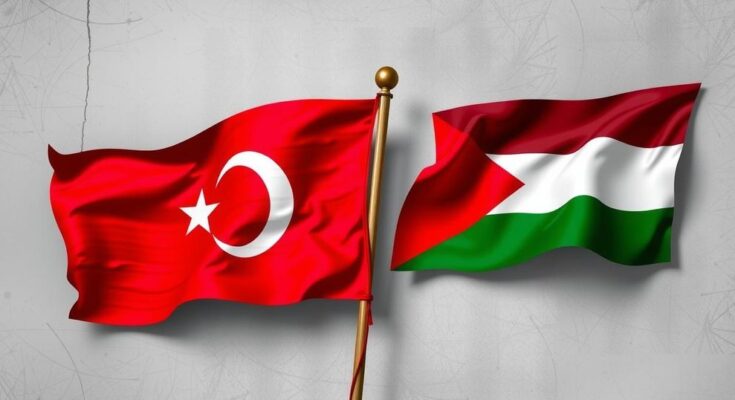President Erdogan stated that Turkey can mediate disputes between Sudan and the UAE, amid accusations of UAE support for the RSF. He emphasized Sudan’s sovereignty and territorial integrity, which was welcomed by Sudan’s leader Burhan, who also sought increased Turkish investment in Sudan.
In a recent communication, President Tayyip Erdogan indicated that Turkey is poised to mediate disputes between Sudan and the United Arab Emirates (UAE) following accusations from the Sudanese military regarding the UAE’s support for the paramilitary group known as the Rapid Support Forces (RSF). The UAE has denied these allegations, which have been corroborated by UN sanctions monitors. During the phone call with Sudan’s sovereign council leader, Abdel Fattah al-Burhan, Erdogan stressed the importance of protecting Sudan’s sovereignty and preventing foreign intervention in the conflict, offering Turkey’s assistance similar to its mediation efforts in the Somalia-Ethiopia dispute. Burhan welcomed Turkey’s potential role in resolving the conflict and expressed enthusiasm for increased Turkish investment in Sudan.
The ongoing conflict in Sudan has drawn attention due to allegations against the UAE regarding its involvement in providing military support to the RSF, a paramilitary group that has gained significant power amid the instability in Sudan. President Erdogan’s suggestion for Turkey to mediate reflects a broader strategy of Turkish foreign policy aimed at strengthening its influence in African and Middle Eastern affairs, while also advocating for the territorial integrity and sovereignty of Sudan within the international arena. Turkey’s prior successes in mediation, notably between Somalia and Ethiopia, bolster its credibility in such diplomatic efforts.
In conclusion, President Erdogan’s affirmations of Turkey’s readiness to mediate in the Sudan-UAE conflict underscore a commitment to regional stability and the support of Sudan’s sovereignty. This diplomatic initiative may pave the way for enhanced relations between Turkey and Sudan, while also seeking to address allegations of foreign intervention in the ongoing conflict. The response from Sudan’s leadership indicates a receptiveness to such support, signaling a potential future of collaborative efforts aimed at resolving the crisis.
Original Source: www.newarab.com




